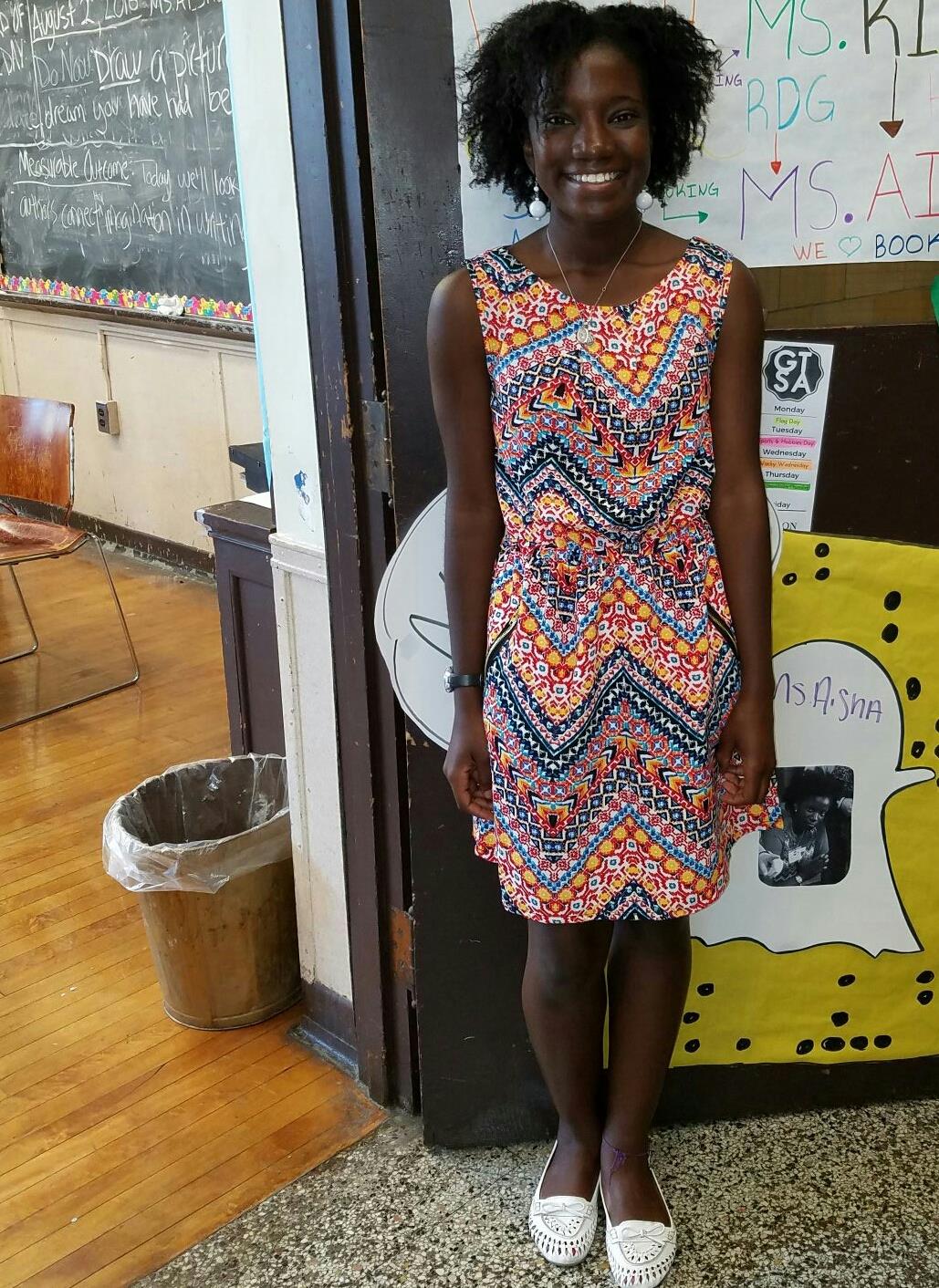 Fueled by coffee and a fully loaded Google Calendar, Aisha Dumbuya leaves her dorm at 8 AM to student teach at an elementary school. She is responsible for setting up the kindergarten classroom — she flicks on the lights of her classroom, turns on the computers and changes the day of the week.
Fueled by coffee and a fully loaded Google Calendar, Aisha Dumbuya leaves her dorm at 8 AM to student teach at an elementary school. She is responsible for setting up the kindergarten classroom — she flicks on the lights of her classroom, turns on the computers and changes the day of the week.
“It may seem really small, but the kids freak out if it says Thursday and it’s Friday,” she said.
She’s been working with students since last semester, but pretty soon she’ll have to start running the class.
Transitioning from being a student to being a teacher has been challenging, but enjoyable for Dumbuya. “At first it was kind of awkward because when you bring a new person into the classroom, the kids test you a little bit even though they’re in kindergarten,” Dumbuya said. “They’ve really grown on me. I’ll go through the hall and I’ll hear their little voices and they’ll be like ‘hi Miss Dumbuya.’”
Working in a kindergarten class, Dumbuya finds herself having a full day, only having ten minutes for lunch before she and her teacher have to reorganize the classroom.
“It’s definitely weird. It doesn’t feel like student teaching, it feels like I’m going into my job everyday. It kind of makes me reflect on how I was as a student because I see students do certain things and I try and think if I was a child how would I react in this way versus another way.”
Using her own personal experience, she’s able to better understand certain behaviors and in the end, finds ways to assist the student. She finds that teaching goes beyond explaining important concepts to students, but also being a mentor.
“I think it’s the fact that I get to work with children and it’s not much like teaching them so much but sometimes connecting with them. I’ve realized that as a teacher you’re not just a teacher: you’re a therapist, a doctor. Sometimes you’re like a co-parent because you have to work a lot with them when the parents ask what to do with their child.”
And with her multifaceted role, she is able to see them grow. “It’s nice seeing them improve,” she said. “For example, [the class had] a reader who wasn’t reading very well last semester and I would come everyday and see that improvement.”
However, Dumbuya says one of the challenges is making sure that every student gets the help they need. “I think the students need to be taken more seriously,” she said. “We have students in our classroom who we have put in paperwork to get evaluated for an IEP, which is an individualized learning plan. There are students who need the extra help who aren’t getting it because sometimes paperwork takes a year, which is when kindergarten is over and if they go into first grade and still don’t have that help, they’re gonna get left behind.”
When she returns back to her room, she finds herself exhausted, but as she puts it, she tries to put her best effort in what she does. “With student leading or teaching you’re kind of doing the same thing. If you don’t put 100% in student groups your members will see that or in teaching, the kids can definitely see that you’re not putting the effort in.”
Now a senior, she finds herself one of the lucky few who have a job waiting after college. She’ll be working as a co-teacher for a charter school program in Boston.
